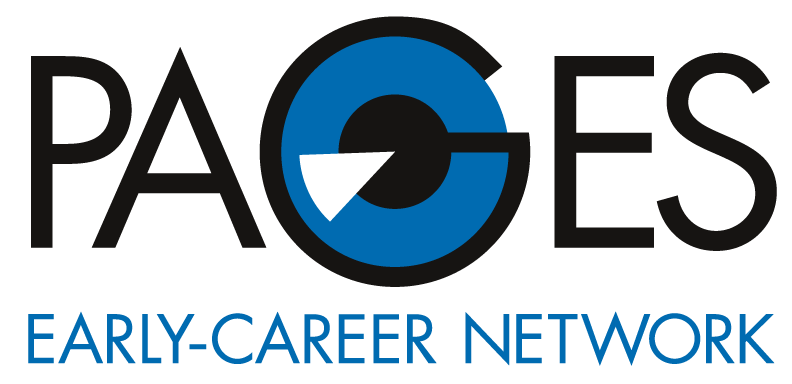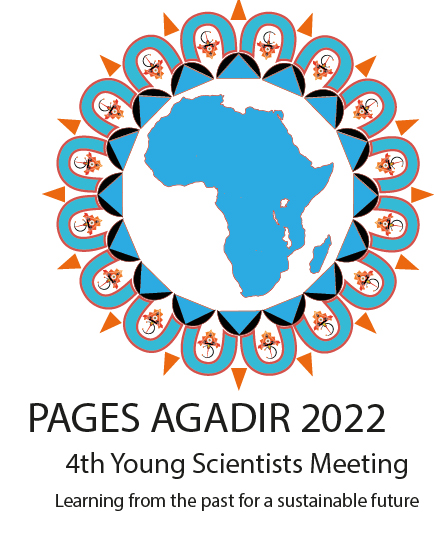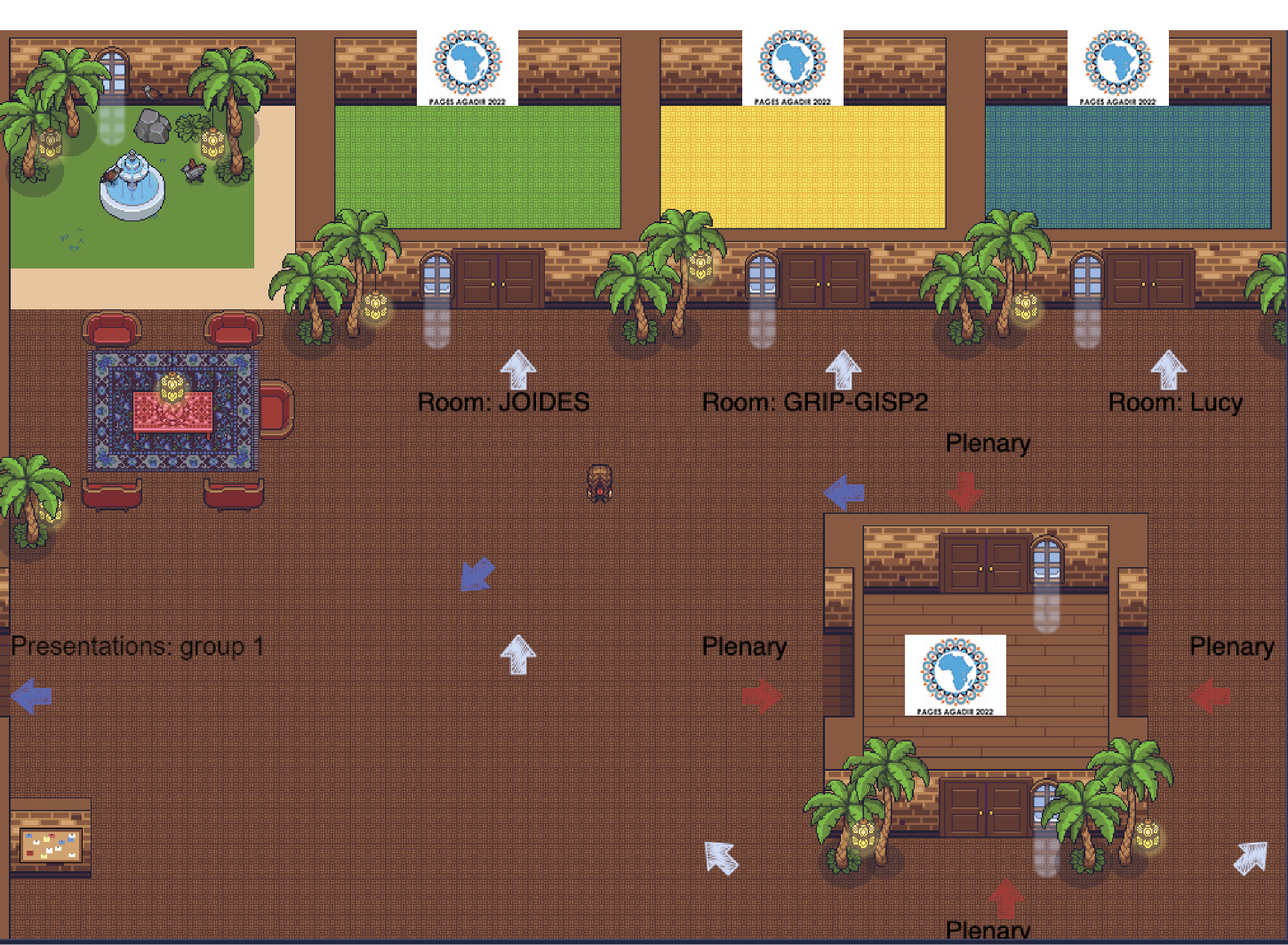- Home
- Publications
- PAGES Magazine
- Studying The Past, Early-career Researchers Gather In The Virtual World For a Better Future
Studying the past, early-career researchers gather in the virtual world for a better future
Nogueira J and Reuter R
Past Global Changes Magazine
30(2)
122
2022
Juliana Nogueira1,2 and Runa Reuter3
PAGES 4th Young Scientists Meeting, online, 9-13 May 2022
The pandemic has brought diverse challenges and a new dynamic to scientific conferences and meetings. The PAGES Young Scientists Meeting (YSM), first held 13 years ago in Corvallis, OR, USA, took place online for the first time in 2022. With adversities comes the opportunity to learn new approaches and improve or adapt old ones. The YSM, already a well-established event, occurs during the week preceding the PAGES Open Science Meeting (OSM) and is a chance for early-career researchers (ECRs) to network and participate in small-group discussions and specialized training sessions. The 4th YSM was meant to have taken place just outside the beautiful city of Agadir, Morocco. However, the circumstances led the participants to join in a different setting, unknown to most until then: the online platform GatherTown (gather.town). Fifty-four participants from 21 countries met in the virtual environment, presenting themselves as personalized avatars. A conference venue was simulated in the style of a 16-bit video game, like the ones very familiar to many of the young participants from "back in the day" (Fig. 1)! By moving the avatars around the scene, one could directly interact with other participants and easily engage in conversations.
For five days, participants could stroll between four breakout rooms and discuss four (out of 12) different topics based on their interests. In a very informal atmosphere, aided by the playfulness of the setting, experienced scientists shared their expertise and knowledge with the next generation of young scientists, providing training in both soft and technical skills. The topics discussed included "social media for scientists", "the right balance between research and private life", "be a part of the climate change solution", "grant-funding agencies", and "career path", among others. As there were participants from all over the world, two groups were formed, and live events were carried out twice a day to accommodate different time zones. The posters and lounge, however, were accessible anytime during the event. This setup sparked insights due to the exposure to various research topics, and encouraged discussions among people with similar scientific interests.
Furthermore, in terms of social interactions, the 4th YSM was full of socializing opportunities, including a cooking competition in which participants learned how to cook traditional Moroccan couscous. Acting skills were called upon in the game Climate Cluedo, where participants were assigned roles as climate scientists or climate skeptics, with the goal of convincing the others to switch to their side by using sets of arguments sent previously to the participants by the organizers. This activity allowed for indepth conversations with other participants while breaking the ice and facilitating networking.
The 60 abstracts presented during the meeting covered a large number of topics. The studies, spanning timescales ranging from the Miocene to the recent past, involved a wide range of environments across the five continents and used different natural and historical archives, in addition to models. Important and timely topics were discussed, such as climate teleconnections, extreme events including drought and floods, climate reconstructions, environmental and hydrological changes, methodological approaches to improve reconstructions, cyclicity, and detection of climatic modes of variability, among others. The posters, some of which included an accompanying video, were available in the virtual poster room and participants received feedback from their colleagues to help improve the quality and presentation of the studies. The diversity of the topics highlighted the advances and improvements in past climate studies performed by ECRs, giving a glimpse of what to expect in the future of paleo research.
The keyword that sums up the 2022 YSM is inclusion. The digital format has strong advantages, such as a low carbon footprint and greatly reduced costs. Although challenging, this edition allowed ECRs from various nationalities to break geographic borders and enroll in a meeting that promoted interactions among the next generation of paleoscientists, encouraging new friendships, collaboration, and knowledge exchange. And maybe the conference's theme, "Lessons from the past for a sustainable future", coincidentally hints that this year's meeting was a lesson for a sustainable future when it comes to scientific meetings.
affiliationS
1Faculty of Forestry and Wood Sciences, Czech University of Life Sciences Prague, Czech Republic
2LARAMG-Radioecology and Climate Change Laboratory, Rio de Janeiro State University, Brazil
3Leibniz Institute for Baltic Sea Research, Warnemünde, Germany
contact
Juliana Nogueira: de_sousa_nogueira fld.czu.cz
fld.czu.cz


